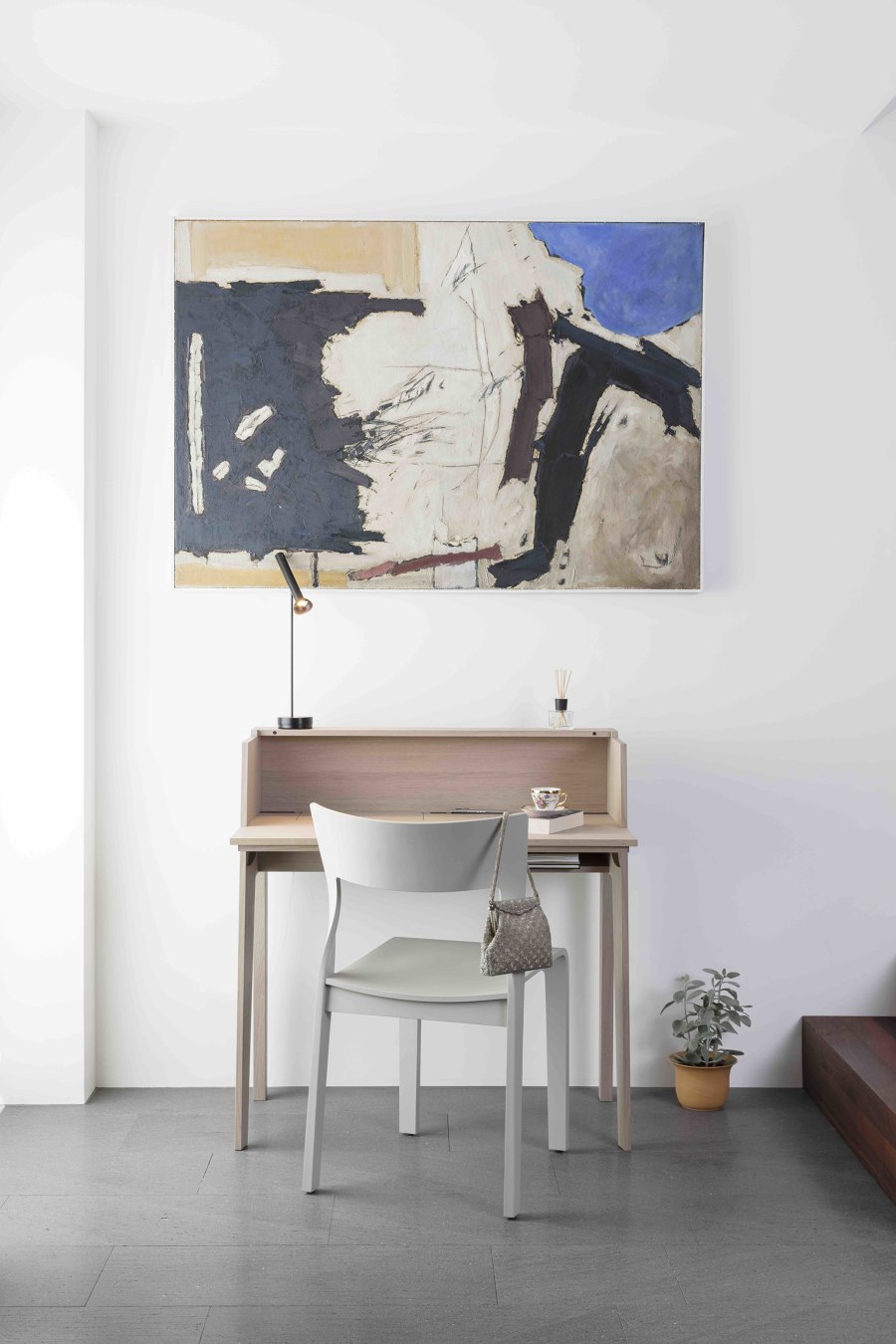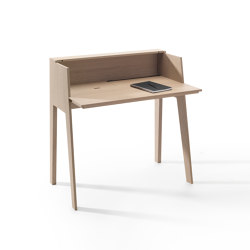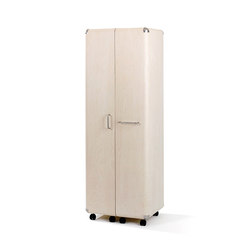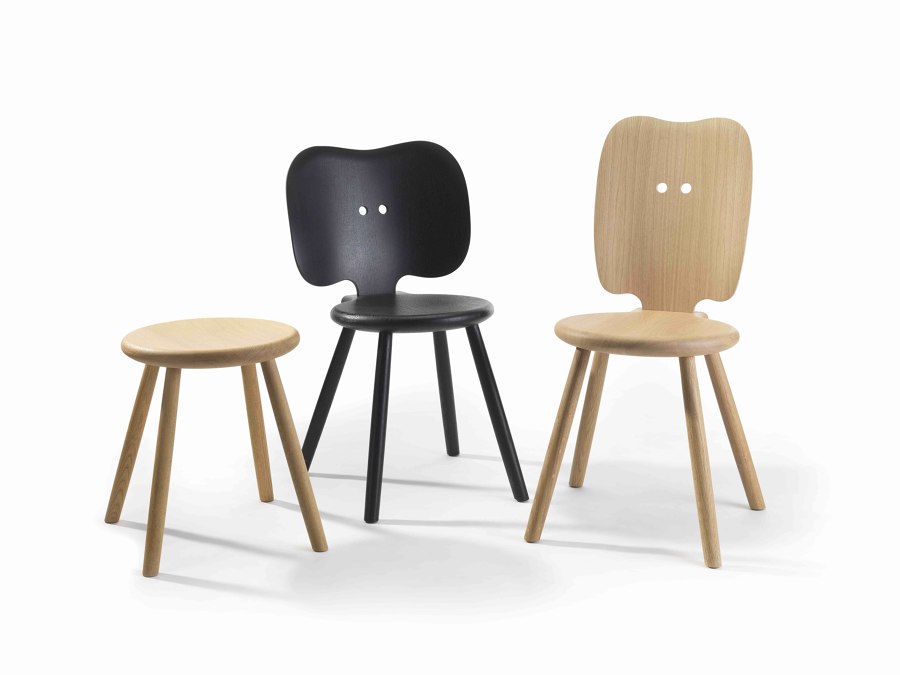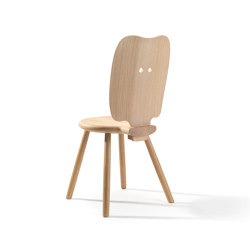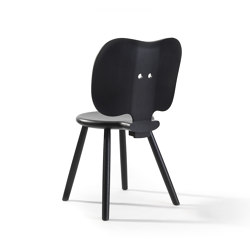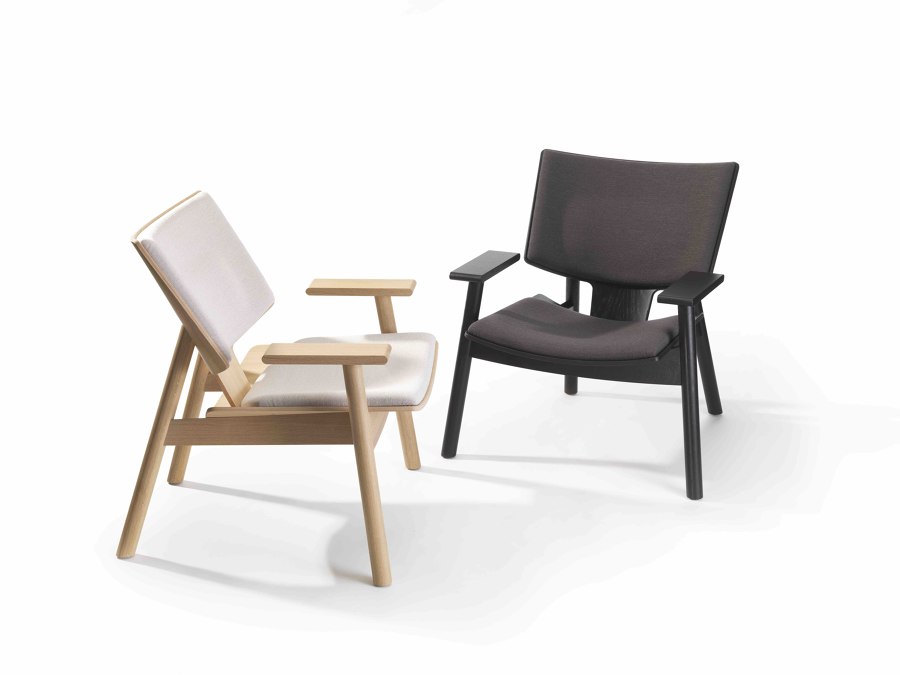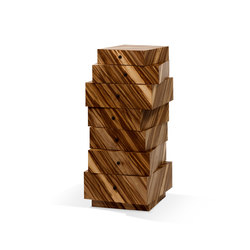The Röthlisberger collection: between craftsmanship and high-tech
Storia del Marchio di Tanja Pabelick
Gümligen, Svizzera
20.05.22
Röthlisberger, originally founded as a joinery shop specialising in the production of designer furniture, launched its own brand almost fifty years ago, with a collection that manages the skilful balancing act between serial production and traditional craftsmanship.
The Röthlisberger collection consists of timeless wooden furniture that is produced with craftsmanship and expertise but also incorporates modern manufacturing processes such as CNC. This enables Röthlisberger to produce its furniture in series
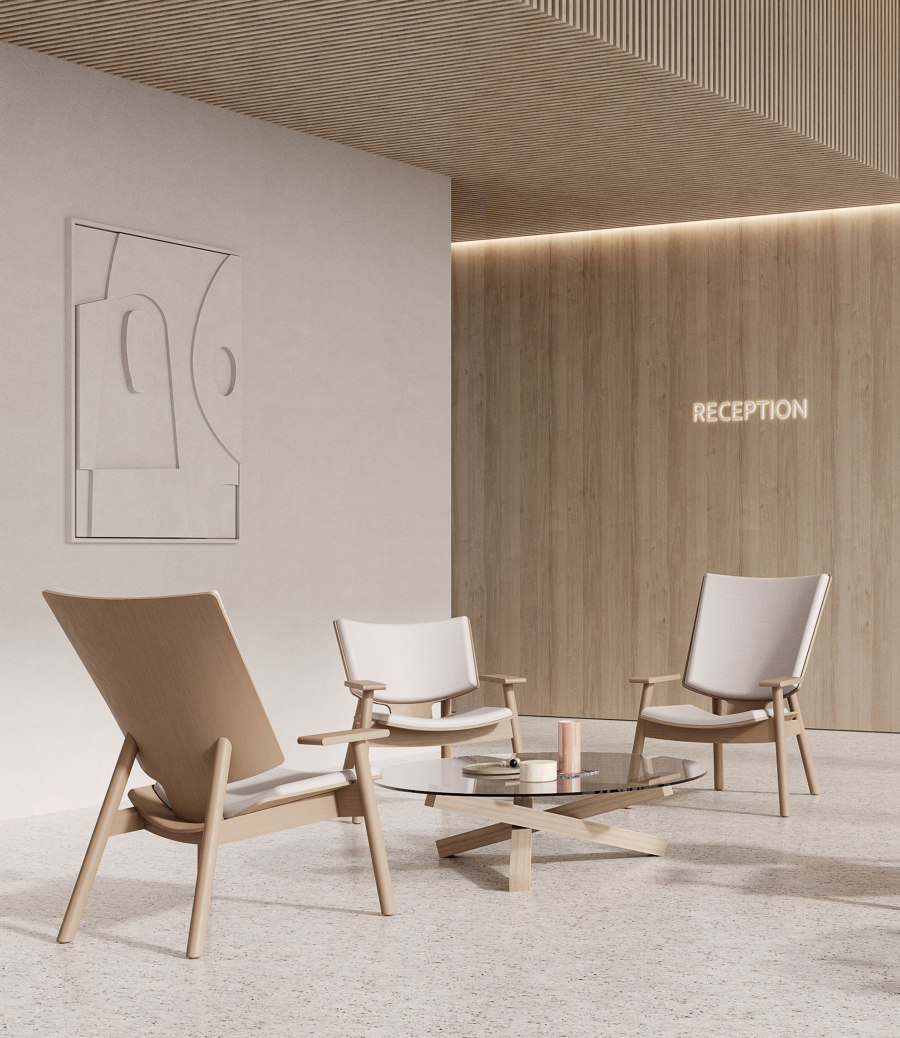
The Röthlisberger collection consists of timeless wooden furniture that is produced with craftsmanship and expertise but also incorporates modern manufacturing processes such as CNC. This enables Röthlisberger to produce its furniture in series
×In the middle of Gümligen, a village just outside Bern, stands a purist, wood-clad cube. It is the headquarters of the Swiss furniture manufacturer Röthlisberger and houses a joinery shop, state-of-the-art machinery, administration space and a showroom. The building has been on Sägeweg since 2002, while the company itself was founded in 1928. Since 2017, the fourth generation has been in charge of this family operation, with brothers Beat, Jan and Mark looking after the two pillars of the company; an interior design department with planning offices in London and New York, and the Röthlisberger collection.
‘Our aim is not to design just for the sake of designing, but to design in a way that is appropriate to the material’
Since its foundation almost a hundred years ago, a lot has happened at Röthlisberger, with many things consciously retained over the years. These include the connection to Switzerland as a location and to the important protagonists of its design and architecture scene, a Helvetic demand for quality in the context of manufacturing, as well as a love for wood as a material.
At At by Tomoko Azumi is an ideal piece of home office furniture. It offers space for a laptop and writing pads, has a homely character in natural wood or stained black – and can hide work-related chaos in the desk box with just a flick of the wrist
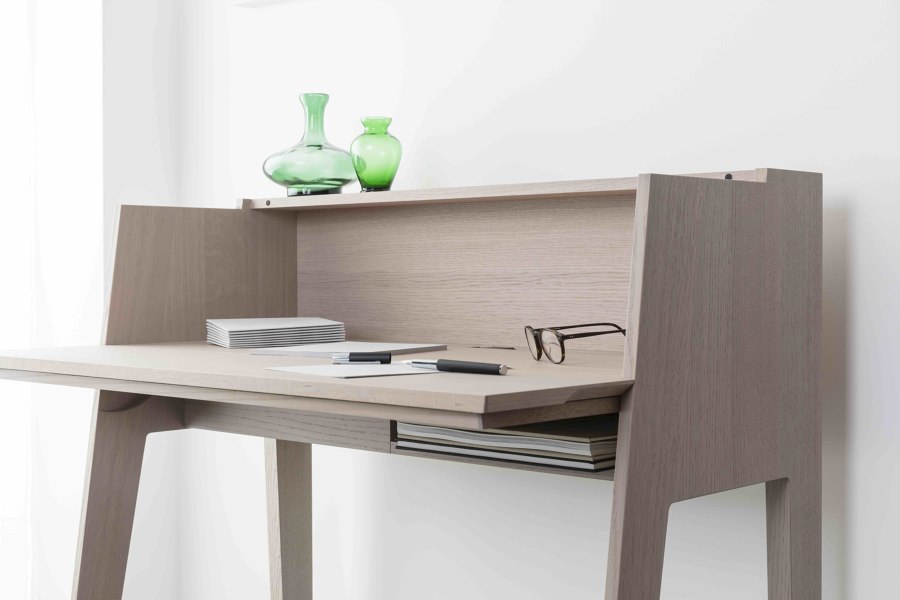
At At by Tomoko Azumi is an ideal piece of home office furniture. It offers space for a laptop and writing pads, has a homely character in natural wood or stained black – and can hide work-related chaos in the desk box with just a flick of the wrist
×Home design made in Switzerland
Röthlisberger has been committed to good design from the very beginning. Even before the founding of its own brand, the joinery shop was producing for Knoll International. Its first own furniture editions were created in 1977 in collaboration with renowned designers such as Hans Eichenberger, Teo Jakob and Susi and Ueli Berger. Many collaborations developed into long-standing friendships. Trix and Robert Haussmann, who had already collaborated on the first collection, also designed the company's wooden headquarters three decades later. Röthlisberger sees its designers not as service providers but as allies. With them, the manufacturer shares one goal: to produce well-designed furniture of the highest quality that lasts a lifetime and has the potential to become a classic. ‘Our furniture can be produced neither purely industrially nor purely by hand,’ says Jan Röthlisberger. ‘Our aim is not to design just for the sake of designing, but to design in a way that is appropriate to the material. The process from the first idea to the finished product is often a long back and forth – because we want to develop the perfect shape or construction.’
With Shell by Ubald Klug, Röthlisberger can fully exploit the potential of its machinery. The cabinet, which has won several design awards, is made of two sheets of aircraft plywood
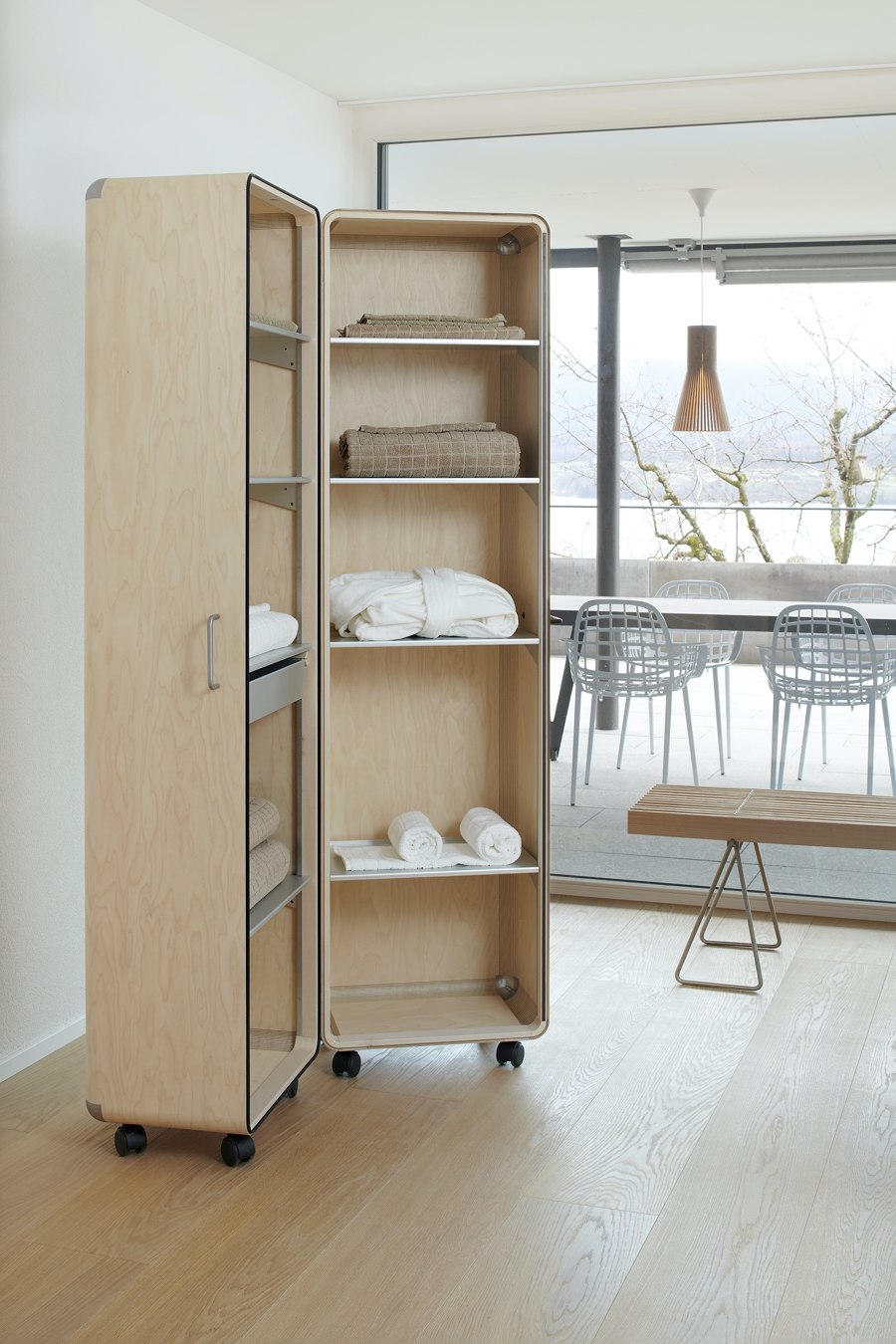
With Shell by Ubald Klug, Röthlisberger can fully exploit the potential of its machinery. The cabinet, which has won several design awards, is made of two sheets of aircraft plywood
×Homage to home
‘For us, it is important to design externally,’ says Röthlisberger. ‘When the input comes from outside, we avoid making production-oriented decisions.’ The constant exchange also provides an opportunity for learning and growth. This is also evidenced by the chair in the collection that shows the strongest connection to Swiss tradition. It was designed by London-based designer Tomoko Azumi. Stabellö is a homage to the classic farmer's chair found in mountain huts and inns. Azumi adopted the typological elements – the tucked backrest, the four sloping legs and the recess in the back – and carefully reinterpreted them. In this way, the rustic table chair was given a contemporary twist. The combination of tradition, precision craftsmanship and a modern design language also appealed to the jury of the Design Preis Schweiz, which awarded the chair in the 'Furniture' category.
Many of Röthlisberger's pieces of furniture are characters. In the case of Stabellö, Tomoko Azumi has replaced the recess in the backrest with two holes and slightly exaggerated the silhouette, giving the chairs the appearance of friendly companions
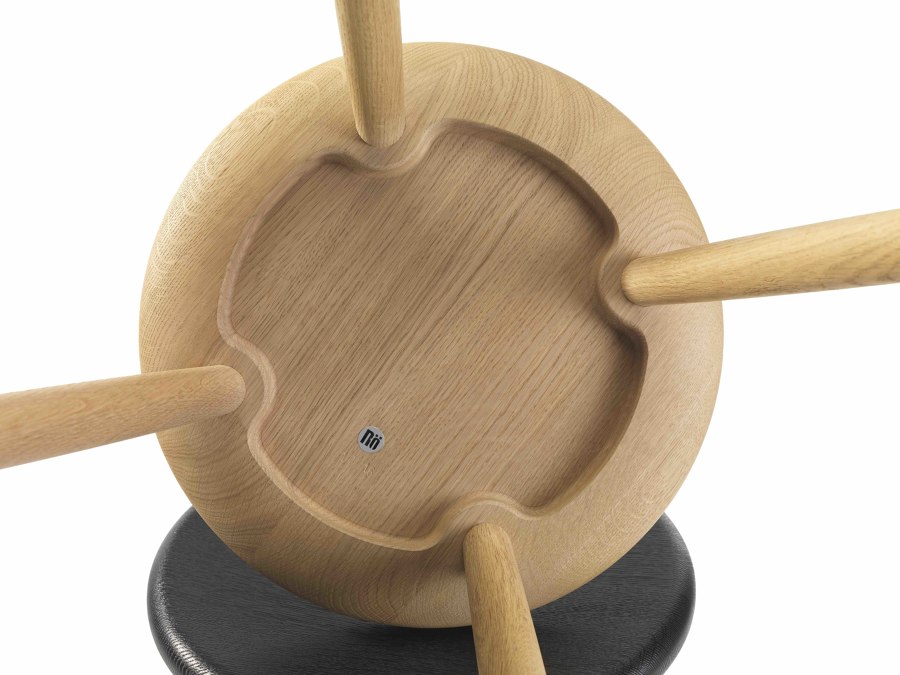
Many of Röthlisberger's pieces of furniture are characters. In the case of Stabellö, Tomoko Azumi has replaced the recess in the backrest with two holes and slightly exaggerated the silhouette, giving the chairs the appearance of friendly companions
×Form follows wood
What all Röthlisberger furniture has in common is the material. ‘Wood is naturally at the heart of our company. Its structures and the possibilities of combining it with other materials make it a very beautiful material,’ continues Röthlisberger. All the wood processed by the company comes with FSC and Precious Woods certification, is not stored and is recycled down to the last chip. For many years, the company has relied on sustainable strategies. ‘Our site is virtually independent of external energy suppliers. We use our own solar energy and heat with production residues, which we process into pellets.’
Like the Stabellö chair, the low Conte lounger is based on a typical wooden construction from the Alpine region, where the backrest is inserted into a recess in the seat
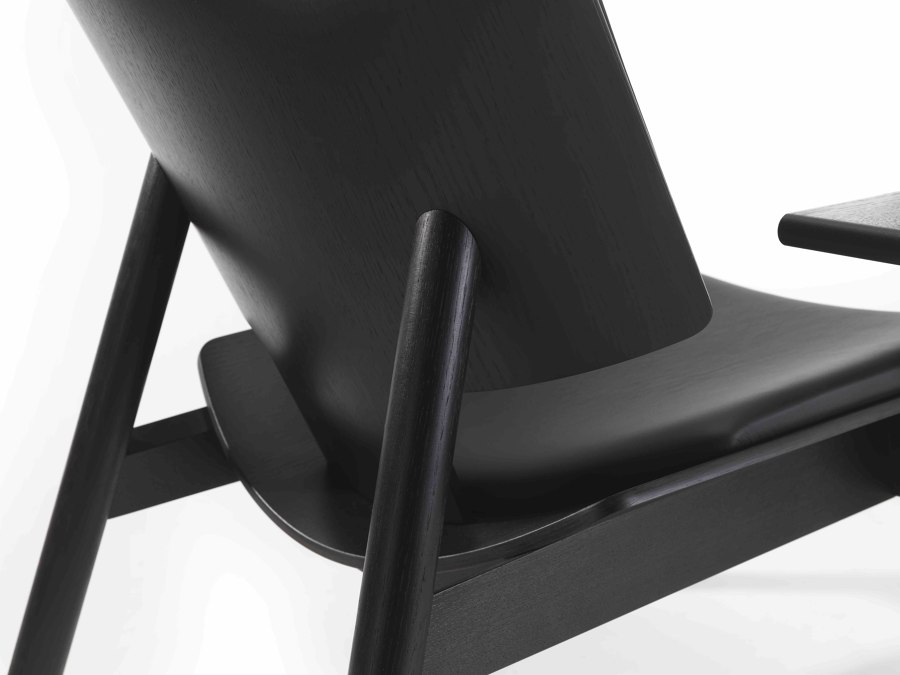
Like the Stabellö chair, the low Conte lounger is based on a typical wooden construction from the Alpine region, where the backrest is inserted into a recess in the seat
×In the spirit of sustainability, furniture should also be with people for a long time. The Röthlisberger collection works out the special qualities of wood as a material and designs furniture with an independent character. The latest addition to the collection, for example, a lounge chair called 'Conte', is designed in such a way that the back element is inserted into the seat. The different heights of the backrest create two model versions and a silhouette that embraces the user like a wide coat. The name refers to this unmistakable feature with a wink: The Conte (the Count) refers to Bram Stoker's Dracula in his distinctive cloak, and in the off-white black version in particular, which is available as an alternative to natural wood, the silhouette of the novel is recognisable.
Röthlisberger combines economic efficiency with ecological responsibility and pays attention to sustainable strategies in relation to architecture, energy, raw materials and its partnerships

Röthlisberger combines economic efficiency with ecological responsibility and pays attention to sustainable strategies in relation to architecture, energy, raw materials and its partnerships
×Good design over generations
Conte was designed by Marc Gerber, who founded his own studio in Bern in 2020. Gerber joins the ranks of young designers who now contribute designs to the Röthlisberger collection alongside design legends. Many pieces of furniture, such as Susi and Ueli Berger's Stack of Drawers or the Shell cabinet by Ubald Klug, are modern classics. Others, such as the At At secretary by Tomoko Azumi or the Staccato shelf column by Atelier Oï, are well on the way to becoming classics with their timeless design.
Röthlisberger and its designers produce furniture that lasts and also does justice to the spirit of the times. This is achieved through precise craftsmanship that benefits from hundreds of years of experience, through materials of the best quality and through designers who can translate all of this into a product with emotion. Anyone who has a piece of Röthlisberger furniture at home can feel that. Or, in a nutshell, as Jan Röthlisberger puts it: ‘The products tell you what kind of quality we have – and what it is we claim to be.’
© Architonic


